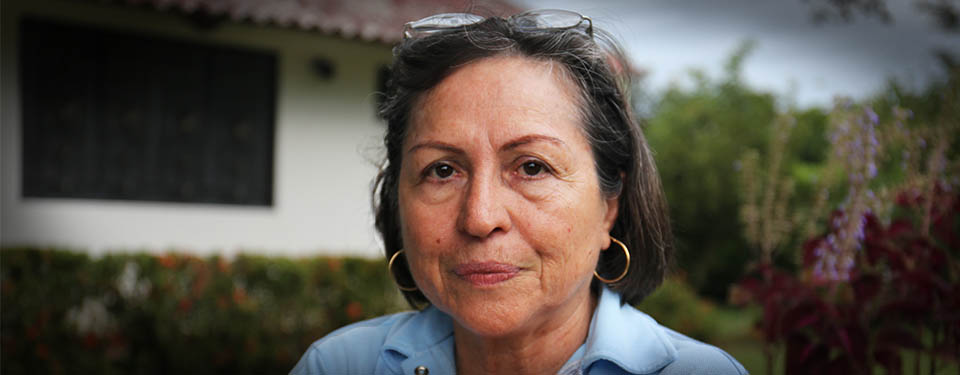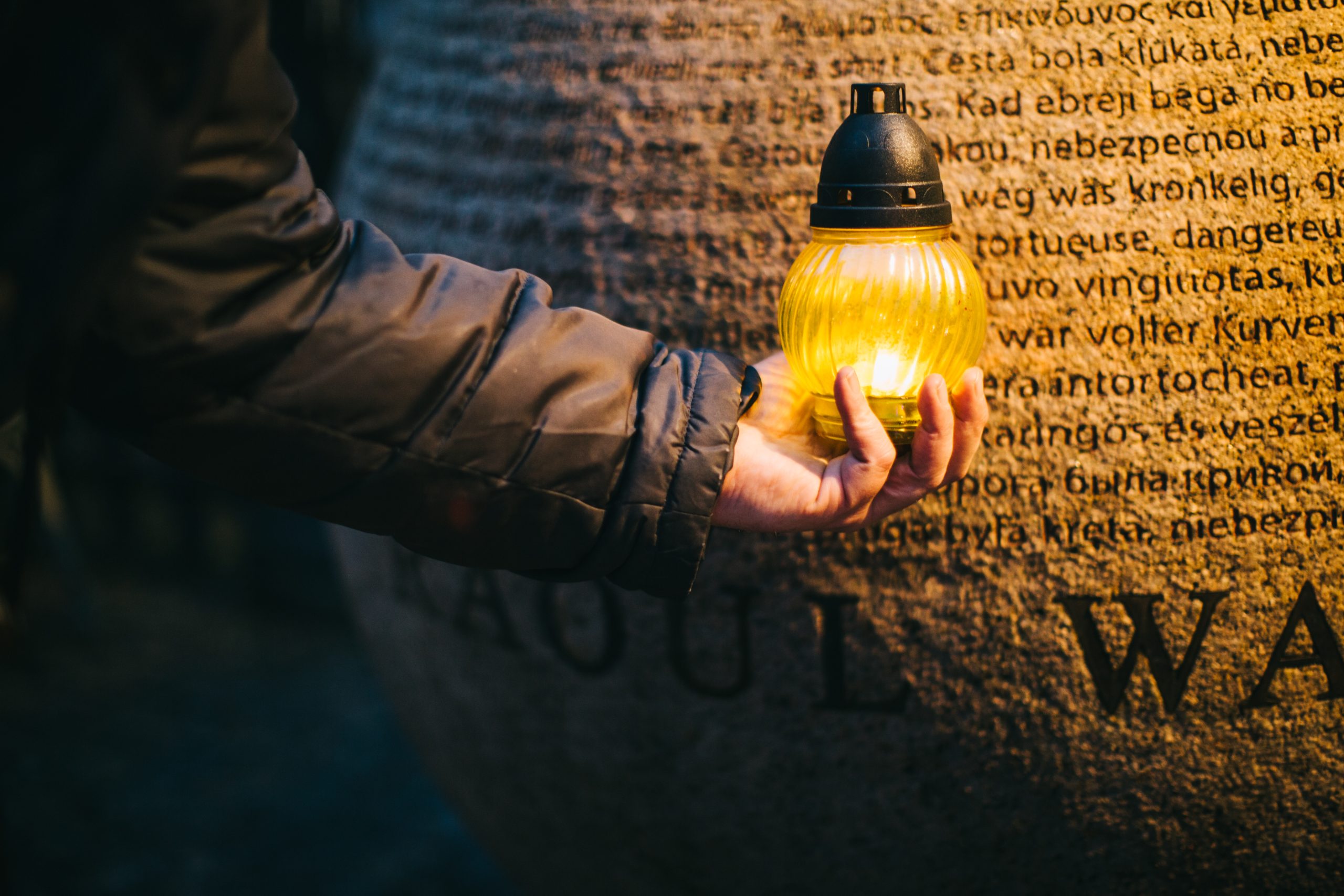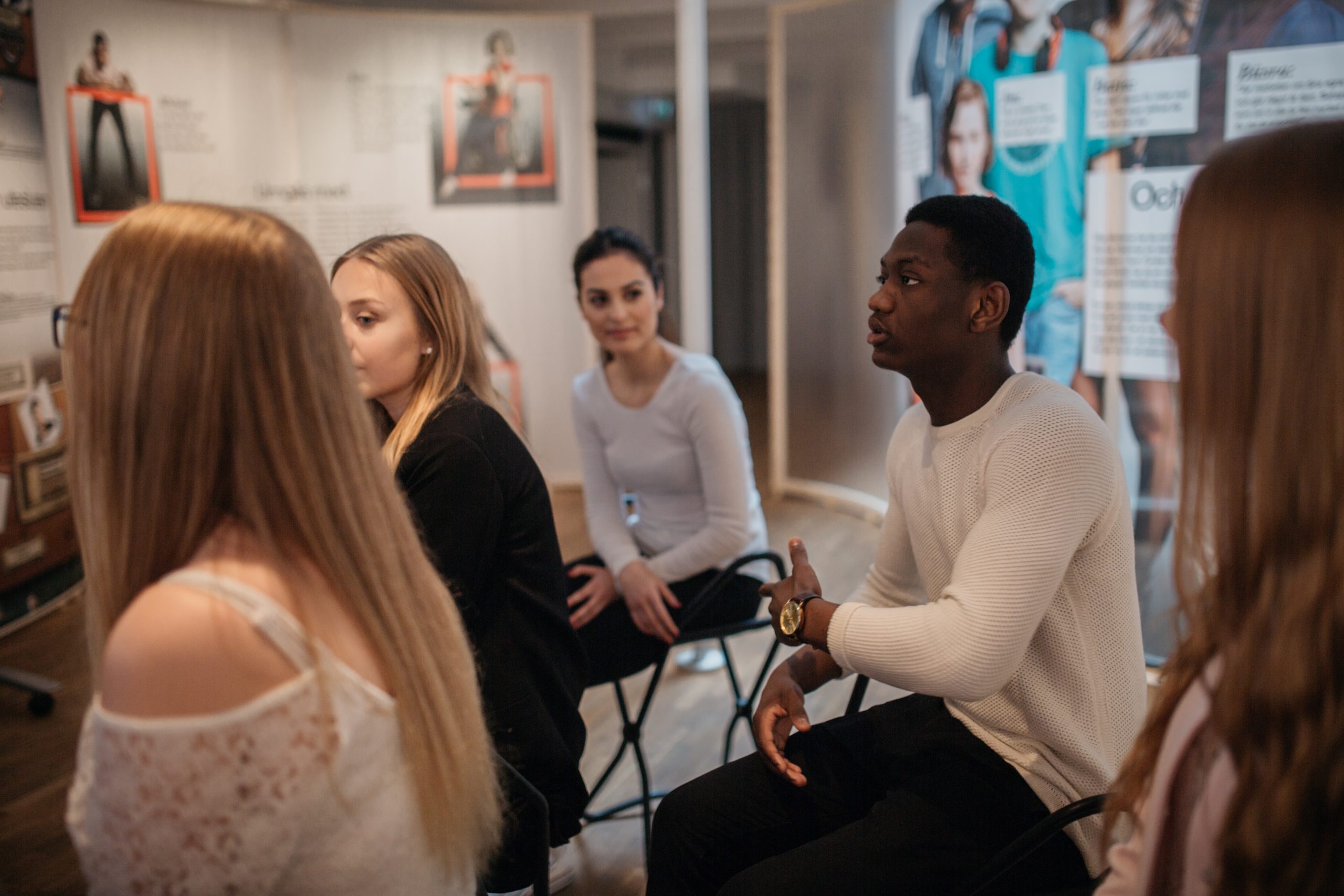2015: Islena Rey Rodríguez
Learn about Islena Rey Rodríguez, recipient of the 2015 Per Anger prize to human rights defenders.

Islena Rey Rodríguez. Photo: Private.
“I’m the only remaining founder of our organisation who’s still alive. They call me ‘the one who survived’.”
Meet Islena Rey Rodríguez
About Islena Rey Rodríguez
The Per Anger prizewinner of 2015 is Colombian human rights activist Islena Rey Rodríguez, who receives the award for her sustained struggle against violence and infringements of human rights in one of the country's most dangerous regions. The nomination organisation is Diakonia.
Islena Rey Rodríguez is the chair of the human rights committee in the Meta department of Columbia. She faces constant death threats and has survived several attempts on her life.
The human rights organisation Comite Civico por los Derechos Humanos del Meta, CCDHM, was founded in 1989. It’s a forum for human rights organisations, community leaders, doctors and labour unions. The organisation provides legal assistance and supports efforts to report violent crimes and human rights offenses. Islena is the only one of the original founding members left. All the others have been murdered or forced into exile. That’s why she’s called “the one who survived”.
Interview with Islena Rey Rodríguez
How are human rights violated in Columbia today?
“Human rights are violated in many ways in Columbia today. The leaders of human rights organisations are killed and those who organise in support of environmental or social rights are persecuted. We don’t even have the basic rights that are guaranteed in the Constitution. Education and medical care are not available to everyone. People are unemployed, the Amerindian population is driven from its lands, and poverty is permanent in rural areas. It’s a tragedy and a travesty that those who fight for a better life for everyone must risk their own.”
Islena and her associates have been subjected to multiple attempts on their lives. But the last one was the worst. It occurred on 17 October 2009 and it has marked her for life.
Tell us what happened
“I was travelling on the River Huejar and had just left a village called Puerto Toledo. The farmers there had invited me in as a witness. They were falsely accused of being guerrilla soldiers and drug dealers. They were innocent farmers, but they were drawn into the armed conflict.”
On the way home, Islena and her colleagues were attacked. Islena was shot twice. One lung, her rib cage and stomach were torn apart. During her first two weeks in hospital, the doctors didn’t believe she would survive. But Islena Rey Rodriguez did.
“It almost killed me. I’m 51% disabled since the attack.”
No one knows for sure who committed the attack, and no one could be brought to justice.
“They all got off scott-free,” Islena says. “That’s often the case in Columbia, unfortunately. Far too often.”
On 13 October 1997, the chairman of the human rights committee in Meta, Josue Giraldo Cardona, was murdered. Since then his successor Islena has had personal protection from the state. She always travels in a bulletproof car and accompanied by two bodyguards. Not even her children can live in peace; they must follow a special personal protection programme. Islena has been offered asylum in several other countries, but she doesn’t want to leave Columbia.
Why do you stay?
“Several of my friends left the country and lived abroad for many years. When they returned, they thought they could live normal lives. But several of them were killed. So I realised, with great sorrow, that if I leave Columbia I can never come back.”
Many people have also asked her to stay. They see her as their only hope.
“It’s difficult to see grown men cry,” she says. “‘If you leave, who can help us?’ they asked. It was the love of my people that made me stay.”
Have there been moments when you’ve felt uncertain or afraid?
“No, I’ve never been uncertain about defending life, human rights or environmental rights. If I ever feel afraid of being disappeared, tortured or imprisoned, it’s when I think of my children. The people who love me and would suffer even more than I would if something like that happened.”
How do you have the strength to go on?
“I’ve accepted the danger we live in, but you never get used to it. But if this is my destiny, then so be it. My associates were killed, and I’m sure that the human rights committee for Meta is in heaven. So when my turn comes around, I know I’ll see them again.”
What measures do you think would increase the respect for human rights in Columbia?
The state, its officials and employees, as well as those who benefit the most from its economic policies, need to understand that a peaceful society requires equality between social classes, particularly in the communities and villages that are ethnically diverse. In addition, the country’s riches need to benefit everyone. An international agreement needs to be made so that the negotiations with the FARC guerrilla can come to an end.”
What does the Per Anger Prize mean to you?
“It’s a great joy and satisfaction that we were awarded this prize. It also serves as recognition and protection. The support of people in other countries is the most important thing of all. You can’t buy that for all the money in the world.”
The Living History Forum would like to emphasise that these interviews are based on the testimony of the prize recipients themselves. They are not an objective assessment of facts on behalf of the government body.



